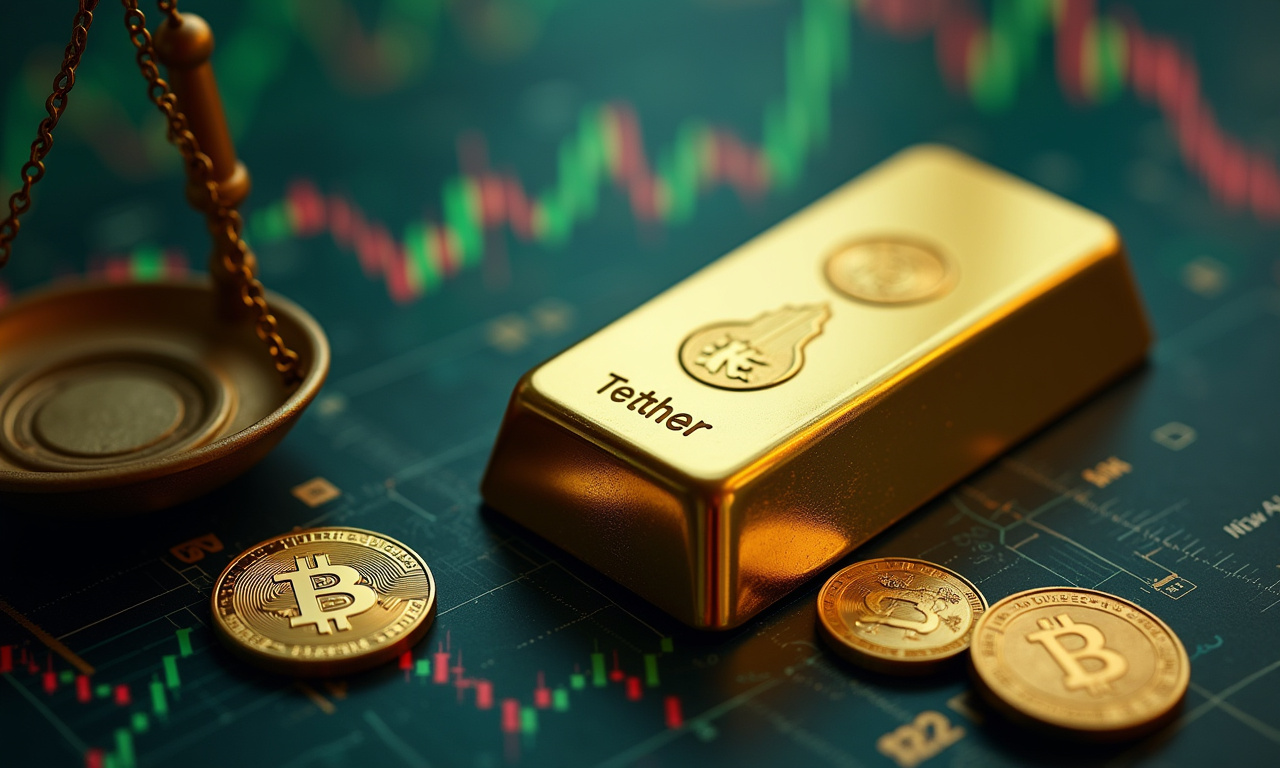ETH's Fall: Are Investor Emotions Driving Crypto's Geopolitical Panic?

Ether's recent plunge – a sharp 7.05% drop to $2,536.06, with intraday dives even deeper – coincided, unsurprisingly, with escalating tensions between Israel and Iran. Is this a simple cause-and-effect relationship, or is there something more insidious afoot? Are rational responses really driving the sell-off, or are we instead seeing a good old-fashioned case of irrational market psychology?
Fear Fuels Fires, Not Facts
The knee-jerk reaction, the so-called "risk-off" sentiment, saw investors stampeding towards the usual suspects: the U.S. dollar, gold, and, initially, oil. A rational response to geopolitical uncertainty, right? Maybe. Consider this: the dollar didn't just strengthen; it outperformed even other safe-haven currencies like the Swiss franc and Japanese yen. That’s not merely hedging; that’s a full-blown fly to perceived safety—and an extreme one at that, almost panic level.
Think about it: we're talking about a decentralized asset, theoretically insulated from traditional financial systems, reacting with more fervor than traditional safe havens. Is there anything worse than suddenly seeing that one vegan at the barbecue best positioned to grab the steak first. It doesn't quite add up, does it?
Loss Aversion Blinds Rationality
First, we, as humans are wired for loss aversion. The hurt from losing $100 doesn’t just outweigh the happiness from winning $100; it hurts over twice as much. This bias, intensified by the 24/7 news cycle and social media echo chambers, can lead to a self-fulfilling prophecy. Investors see red, remember past crypto crashes, and think, "I need to get out now before I lose everything!" As selling pressure increased, ETH price dropped and trading volume in ETH skyrocketed to 692,000 ETH traded in one day.
This is where the unexpected connection comes in: it's akin to the toilet paper hoarding at the start of the pandemic. Was there ever a logical basis for hoarding months’ supply of toilet paper? No. Yet fear, incited by ambiguity and a lack of answers, caused everyone to make knee-jerk reactions. The same principle applies here. Israel and Iran may represent the original match that lights the fire, but it’s fear that pours the gasoline to start an inferno.
Debunking The "Rational Actor" Myth
That would require abandoning the comforting lie we tell ourselves, which is that markets are navigated by all-knowing, omniscient actors, making rational decisions based on complete information. The reality, however, is that we’re emotional beings, easily influenced by our own biases and given to herd behavior. Confirmation bias kicks in: investors who already believe crypto is a risky asset seize on the geopolitical news as confirmation of their beliefs. They limit consideration of any potential upside or long-term value, driving attention to only the immediate threat.
Think about the average crypto investor. Most are perhaps still in the early stages of their development, so could be new to the world of finance, without the experience to cope with whipsawing conditions. These folks are vulnerable to the “get rich quick” reinvention narratives, and thus, susceptible to the “get poor quick” counter-reactions.
What's the Alternative?
So, what’s the antidote to this emotional contagion? Critical thinking. Do your own research. Resist the urge to follow the herd. Ask yourself: Am I selling out of fear, or based on a reasoned assessment of the long-term prospects of ETH?
It’s all too easy to get caught up in the frenzy. It can be hard because it does indeed take a lot of courage to retreat, regroup, breathe and make choices rooted in reason, not panic.
Market strategists are extremely short the dollar as well, though faith in that trade hasn’t totally evaporated. The dollar's rebound was considered significant. So we have to ask ourselves, where is the elusive opportunity in the marketplace?
Rather than giving in to the geopolitics frenzy, maybe we should remember the human price tag of all these Trump-backs. The Israel-Iran enmity is not just a numbers game. It truly does, deeply, impact real lives, families, and the pain they are going through. Let’s make sure our investment decisions are guided by empathy and a long-term vision—not fear.
Perhaps, just perhaps, we’ll be one step closer to a more responsible and human-centered financial system.

Ava Thompson
Blockchain Market Psychology Editor
Ava Thompson explores blockchain and market psychology through an evidence-based yet human-focused lens. She bridges strategic thinking with direct, nuanced communication, and her work features a balance of in-depth analysis and relatable storytelling. Outside the newsroom, Ava is an avid urban gardener and street art enthusiast.
Related News

Altcoin Apocalypse? Why Bitcoin's Dominance Surge Should Terrify You
Forget the Lambo dreams. Forget the moon shots. So in the current state of things if you are a big holder of altcoins, you should be scared to death. Bitcoin’s recent dominance surge isn’t just a momentary spike, it’s a flashing red warning light. This does not indicate positive fundamentals...

Tether Gold (XAUt) Risks You Can't Ignore, and How to Navigate Them
XAUt, Tether’s gold-backed token, offers the glitter of gold with the convenience of crypto. Sounds great, right? Maybe. In the information age, the hunt for treasure has changed entirely. We no longer protect our treasures with maps and shovels, but rather blockchains and private keys. Before you begin this tech-driven...

Tether Gold (XAUt) is the Future of Gold Investment, Here's Why
Traditional gold is dead. Well, not dead perhaps, but definitely of on life support. Think about it: you're either lugging around heavy bars in a vault (and paying someone to guard them), or trusting some ETF to actually have the gold they say they do. That's your 'store of value'?...